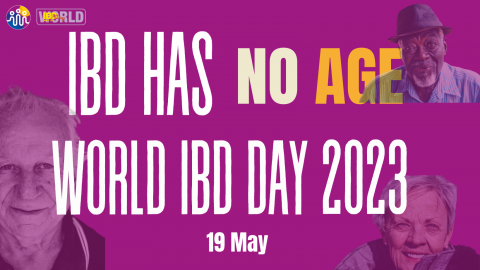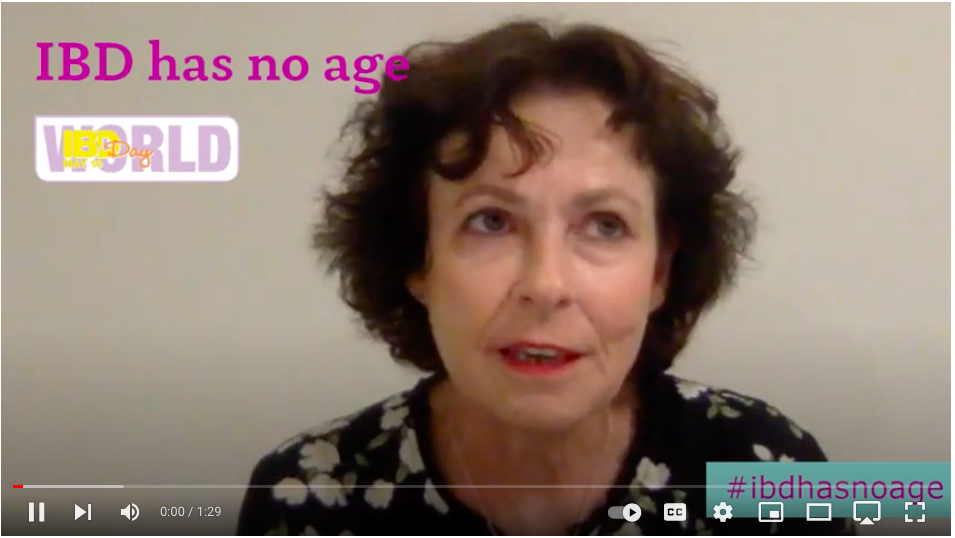
IBD HAS NO AGE is an EFCCA campaign started in 2022 in order to raise awareness of how Inflammatory Bowel Disease (IBD) is impacting on the life of people aged 60 years and over. This year, for World IBD Day 2023 (19 May), we are launching a survey on people with IBD aged 60 years and over to investigate more on this topic with questions related to both quality of care and quality of life.
GO TO SURVEY: Survey on people with IBD aged 60 and over
READ OUR World IBD Day Report 2023
Why people with IBD aged 60 years and over ?
While IBD commonly peaks in young adulthood, a significant 10% to 15% of newly diagnosed people with IBD are 60 years and over. Moreover, it is estimated that in the next decade, 1/3 of all patients with IBD will be older adults (60 and above).
Our Key message are:
Equal access to best treatment options
Currently, clinical data to inform treatment options practices are based on observational data or indirect evidence because people with IBD aged 60 years and over are underrepresented in clinical studies. Therefore there is a risk of IBD patients in this age group not benefitting from best treatment options.
We need a better understanding of the disease epidemiology among the older population and specific knowledge for the management and treatment of IBD in advanced age. There needs to be more research on specific issues related to comorbidities, polypharmacy, drug effectiveness and interactions.
Watch our Purple Talk (Webinar) organised on World IBD Day 2022 on the issue of IBD in people aged 60 years and over and the need for more comprehensive scientific evidence. Our invitees included representatives from the scientific community to discuss the challenges and unmet needs of people with IBD aged 60 years and over.
Being better prepared
The fact that the IBD population is shifting towards an older age calls for comprehensive actions to meet these challenges and better prepare our healthcare systems for an ageing IBD population.
As such, health systems must be capable of providing older person-centred and integrated care and focus on maintaining capacities as people age. The approach to treatment must be tailored to the individual.
Our mindset
Our mindset around ageing needs to change! Ageism – discrimination against a person based on their age – has severe consequences for older people and societies at large. Older people are often assumed to be frail or dependent and a burden to society. Health professionals, patient associations and other stakeholders must tackle this discrimination and strive towards comprehensive approaches and policies to enable a good quality of life for elderly patients.
How to get involved?
- GET EDUCATED - The more we know about a topic the easier it is to better advocate for it! Watch EFCCA discussing this topic with representatives from a focus group that involved 8 patient associations. The videos highlight some of the main concerns and realities of living with IBD as people aged 60 years and over.

- SPREAD THE WORD - Help us become more visible. Share this campaign on social media, using our graphics and hashtags (#ibdhasnoage, #worldibdday2023). Use our Facebook banner. IBD has no age-facebook banner
- ACT - In 2023 we will be launching our survey on IBD in people aged 60 years and over. Help us by either responding to the survey (if eligible) or spreading the word about it so that we can increase participation and get a better picture of the current situation.
Download our communication toolkit and leaflet: